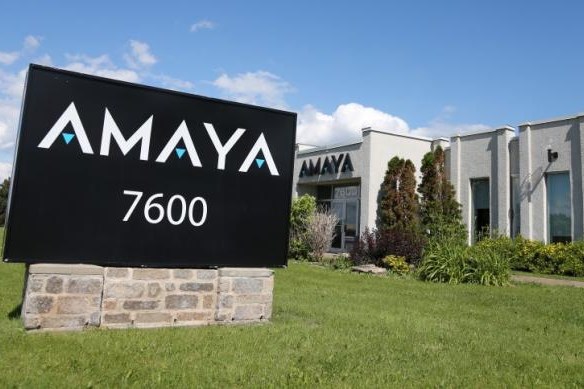






Amaya, William Hill Merger Falls ThroughPokerStars' Parent Says Former CEO Still Interested In Acquiring Company |
|
|
 Merger discussions between internet gambling giants Amaya Gaming and William Hill have ended, the former said Tuesday.
Merger discussions between internet gambling giants Amaya Gaming and William Hill have ended, the former said Tuesday.
“Those discussions have concluded, and Amaya and William Hill have determined that they will no longer pursue the merger,” the parent company of PokerStars said in a statement.
The market value of William Hill is $3.3 billion, while Amaya is worth $2.6 billion, according to Bloomberg. Amaya called the talks “a potential all share merger of equals.”
Amaya said that a special committee of independent directors of its board finished a “strategic alternatives review” and determined the deal wasn’t the best play.
“Amaya is a strong and growing company with experienced management and a proven strategy to deliver profitable growth and shareholder value,” Divyesh Gadhia, Chairman of Amaya, said in a statement. “Together with our financial advisors, we evaluated a wide range of strategic alternatives to maximize shareholder value and have concluded that remaining an independent company is in the best interest of Amaya’s shareholders at this time.”
Amaya added that former CEO David Baazov “continues to be interested” in acquiring all of the outstanding shares of Amaya. It came to light earlier this year that Baazov, who is currently fighting insider trading charges, is considering a bid to take the company private.
The company said it hasn’t received an offer that it believes is “capable of resulting” in a deal.
“While the Board will consider any bona fide offer that Mr. Baazov or any other party may make, Amaya’s review of strategic alternatives has concluded,” the company said.
The merger discussions followed an attempt by 888 Holdings and Rank Group to acquire William Hill. The bookmaker rejected the $4.2 billion takeover offer from the two rival online gaming firms. In 2015, William Hill was looking at acquiring 888 for $1 billion.
In the online gambling industry, about $14 billion in mergers and acquisitions has been spent over the past two years alone, according to Bloomberg.
